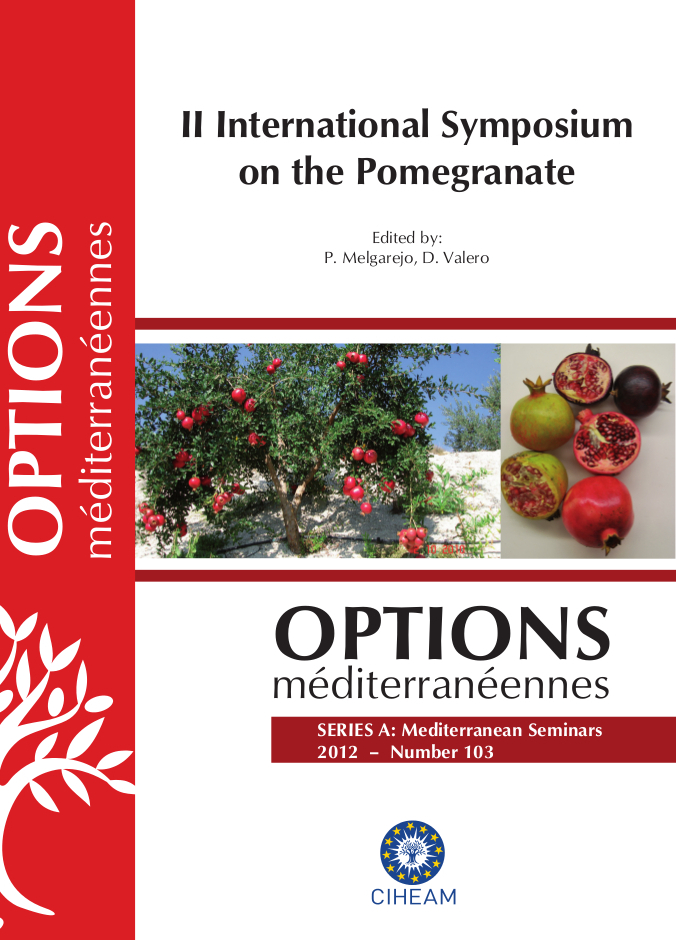| Article précédent | p. 229-231 | Article suivant |
Polyamines applied by immersion or pressure maintain ‘Mollar de Elche’ pomegranate quality stored at chilling temperatures
Pomegranate fruits (Punica granatum L. cv. ‘Mollar de Elche’) were treated with putrescine (Put)or spermdine (Spd) at 1 mM under pressure-infiltration or immersion prior cold storage at 2°C. Non-treated fruit developed rapidly chilling injury (CI), with main symptoms being skin browning, increased electrolyte leakage and weight loss. During storage losses of firmness and colour and increases in °Brix/acidity ratio and respiration rate were observed. All these changes were significantly delayed by polyamine treatments, with effectiveness being found similar either by pressure-infiltration or by immersion. The reduction of CI severity was correlated to the increased levels of free endogenous Put and Spd in the skin, which could induce acclimation of pomegranate to cold temperature and also a mechanism of protection to CI, with a net increase of the shelf-life. In conclusion, in this paper a novel technology based on the exogenous application of Put or Spd under pressure-infiltration or immersion could induce acclimation of pomegranate to low temperature, and in turn protect the fruit to CI by increasing the levels of endogenous Put and Spd.
- [ Afficher ]
- [ Télécharger ]
- [ Exporter la citation ]
Vous pouvez télécharger la citation au format :
- [ Imprimer ]
-
Mots-clés
FERMETE, PUTRESCINECiter cet article
Valero D., Mirdehghan S.H., Zapata P.J., Castillo S., Martínez-Romero D. Polyamines applied by immersion or pressure maintain ‘Mollar de Elche’ pomegranate quality stored at chilling temperatures. In : Melgarejo P. (ed.), Valero D. (ed.). II International Symposium on the Pomegranate. Zaragoza : CIHEAM / Universidad Miguel Hernández, 2012. p. 229-231. (Options Méditerranéennes : Série A. Séminaires Méditerranéens; n. 103). 2. International Symposium on the Pomegranate, 2011/10/19-21, Madrid (Spain). http://om.ciheam.org/om/pdf/a103/00006953.pdf



